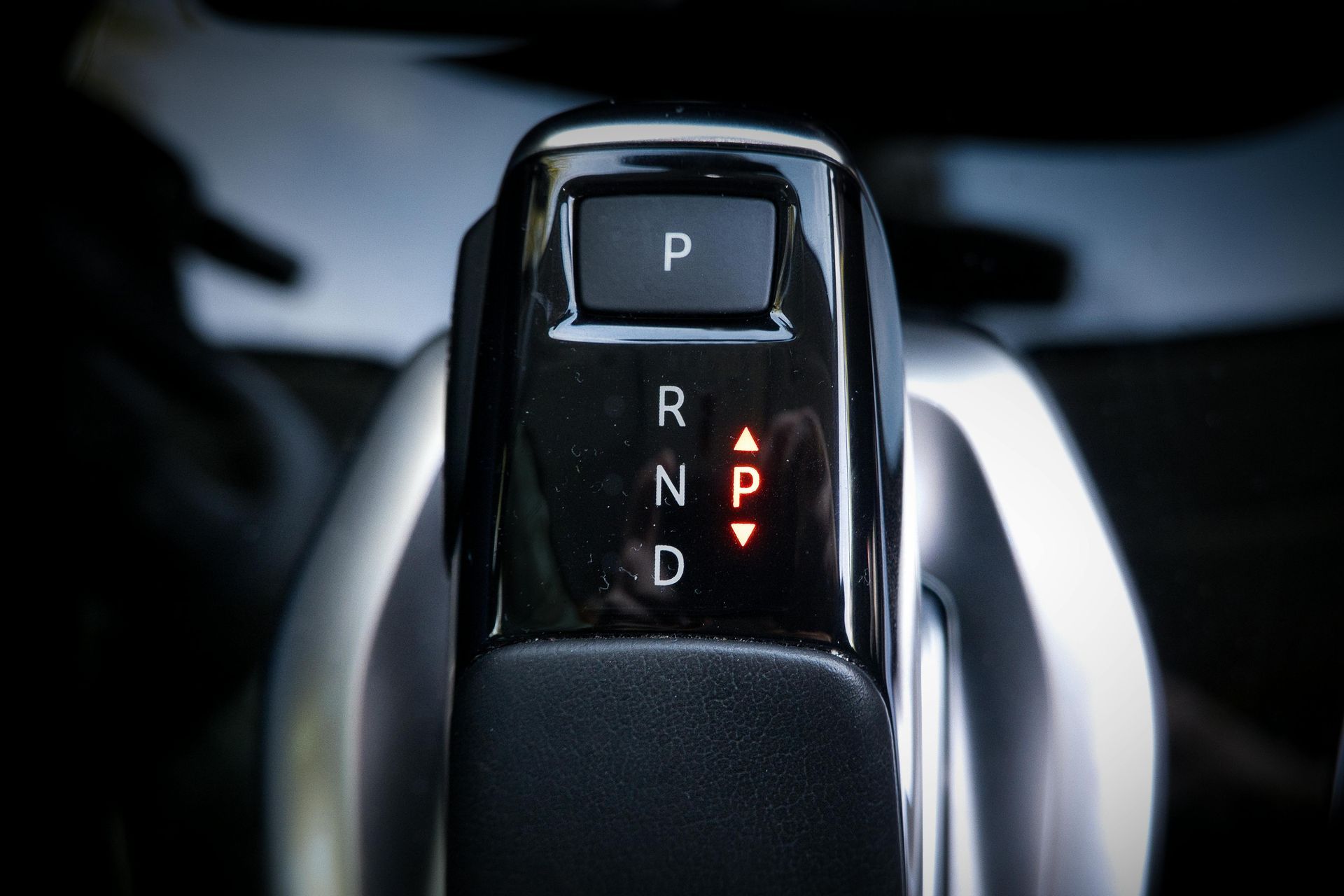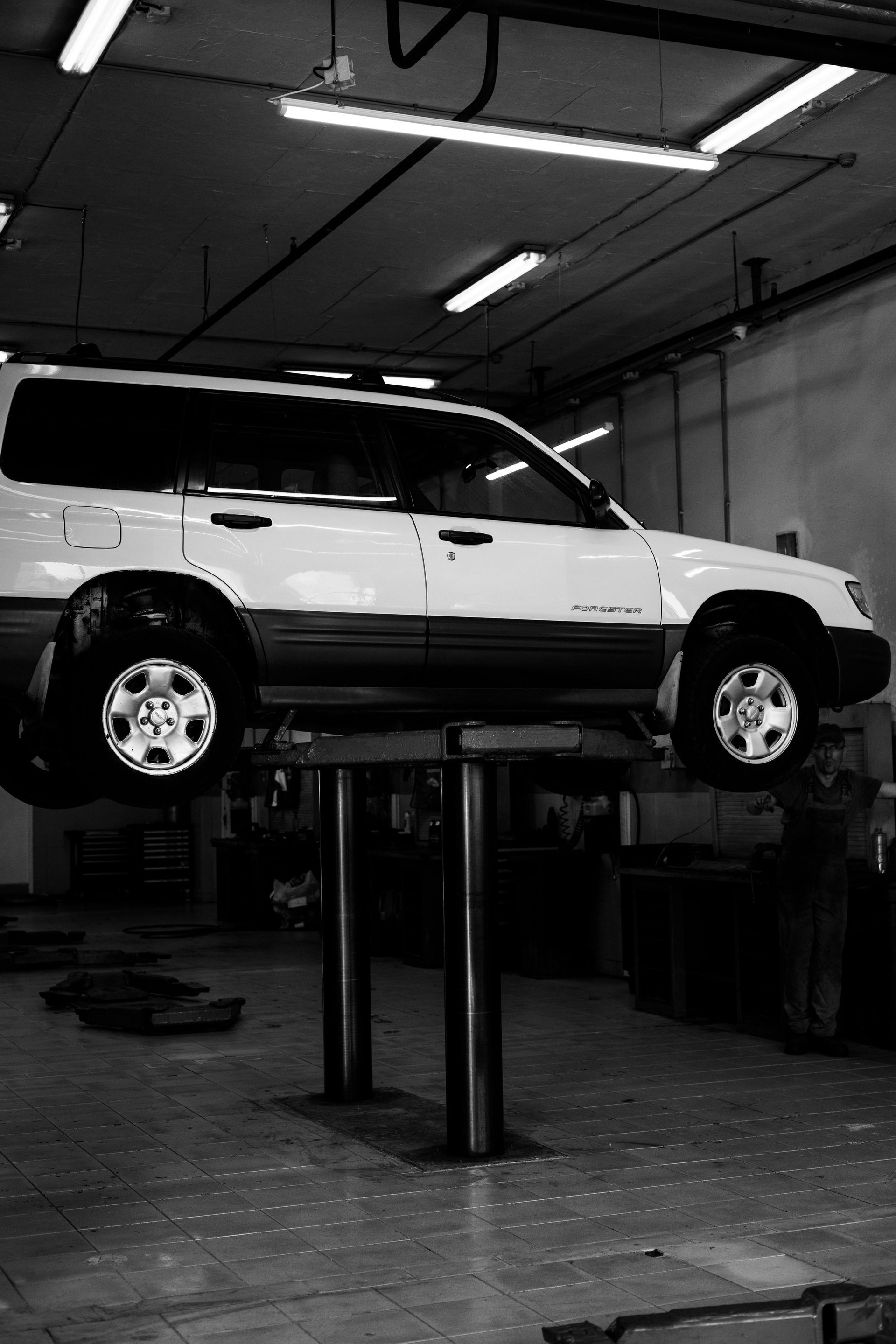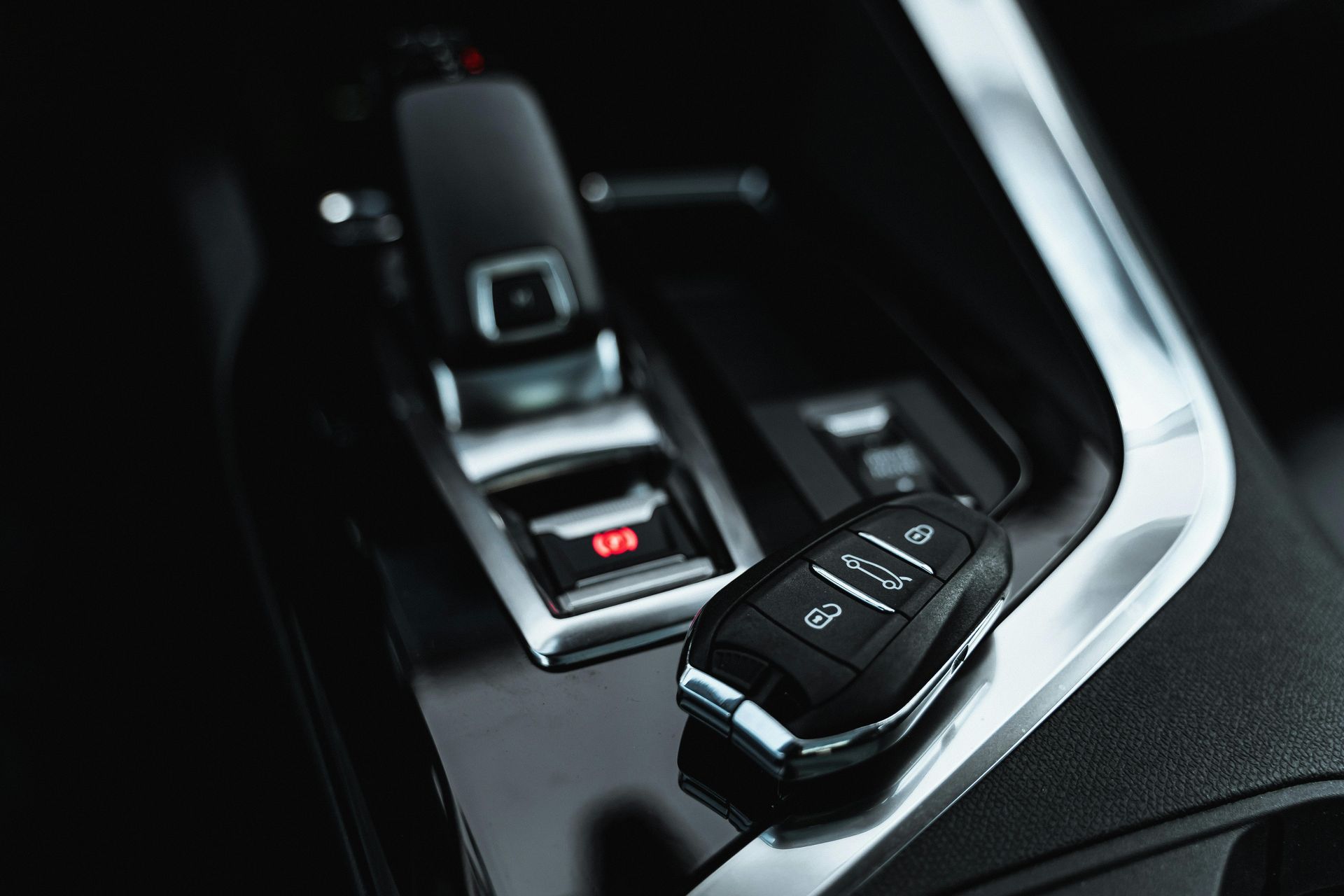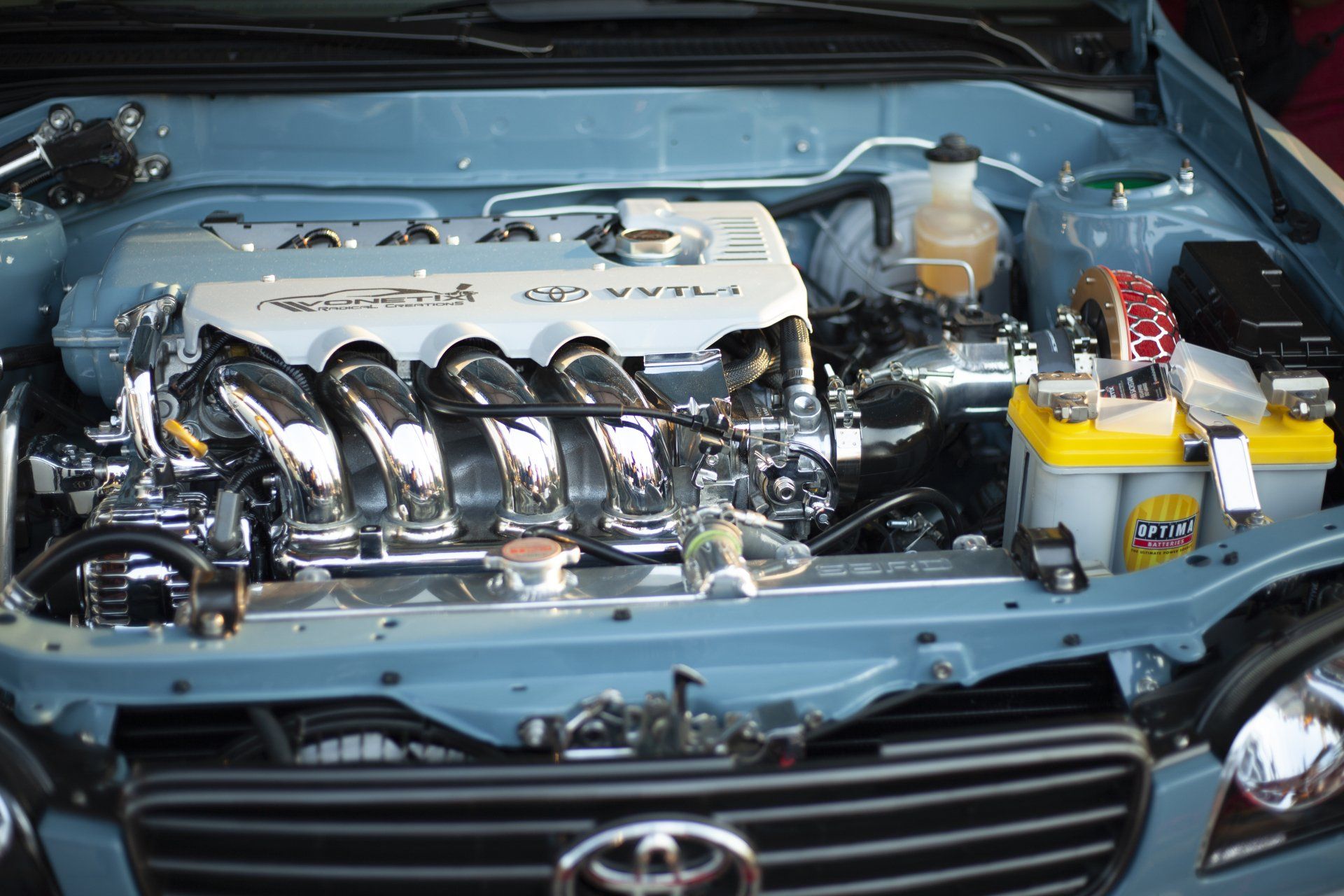Lloyd's Automotive and Transmission Specialists Blog

Your vehicle’s automatic transmission plays a critical role in keeping your car moving efficiently and safely. When transmission issues arise, they often start small but can quickly escalate into major repairs if ignored. At Lloyd’s Automotive & Transmission Specialists, we provide expert automatic transmission repair in the greater Olympima area. Here are four common automatic transmission problems that should be addressed as soon as possible. Delayed or Slipping Gears If your vehicle hesitates before shifting or feels like it's slipping out of gear while driving, that’s a red flag. This type of issue can indicate worn-out transmission bands, low fluid levels, or internal component damage. Slipping gears can not only affect your car’s performance, but also create a dangerous situation on the road if your vehicle suddenly loses power or fails to accelerate properly. Prompt diagnosis and repair are essential to prevent further damage. Unusual Noises During Shifting Hearing grinding, whining, or clunking noises when your vehicle shifts gears is a sign that something is wrong within the transmission. These noises can point to a variety of problems, including damaged gears or insufficient transmission fluid. The longer these sounds persist, the more likely you are to face a costly repair. Addressing the noise early can often lead to a simpler and less expensive fix. Transmission Fluid Leaks Transmission fluid is essential for keeping the system lubricated and cool. If you notice reddish fluid pooling under your car, it could be due to a transmission fluid leak. Leaks can occur from worn seals, cracked lines, or a damaged transmission pan. Driving with low transmission fluid can lead to overheating and significant internal damage. It's crucial to have the leak inspected and repaired as soon as it's detected. Rough or Hard Shifting If your car jerks or lurches when shifting between gears, it’s a sign of transmission trouble. This kind of harsh shifting can stem from low fluid, faulty solenoids, or internal wear and tear. Left unchecked, the problem may worsen, potentially causing long-term damage to the transmission system. Transmission Repair in Olympia, WA When you need transmission repair in Olympia and the surrounding area, contact Lloyd’s Automotive & Transmission Specialists at (360) 357-7422. At our nearby auto shop, we can expertly handle your vehicle’s repair and maintenance needs. Feel free to give us a call to make an appointment!

A properly functioning cooling system is essential for keeping your engine at a safe operating temperature. If the cooling system fails, your engine could overheat, leading to major damage and costly repairs. At Lloyd’s Automotive & Transmission Specialists, our local mechanics provide expert cooling system repair in the greater Olympia area. Here are four warning signs of a cooling system problem. Engine Overheating One of the most obvious signs of cooling system trouble is an overheating engine. If your temperature gauge rises into the red zone or you see steam coming from under the hood, your engine is running too hot. This could be caused by issues such as low coolant levels, a failing thermostat, a faulty radiator, or a malfunctioning water pump. Continuing to drive an overheating vehicle can lead to engine failure, so it’s crucial to pull over safely and alert the mechanic ASAP. Coolant Leaks If you notice bright green, orange, or pink fluid (your coolant might be a different color) pooling under your vehicle, you likely have a coolant leak. Coolant leaks can occur due to worn hoses, a cracked radiator, or a failing water pump. Even a small leak can lead to low coolant levels, reducing the system’s ability to regulate engine temperature. If you spot a leak, it’s important to have your cooling system inspected and repaired as soon as possible. Low Coolant Levels Regularly checking your coolant reservoir can help you detect potential cooling system issues early. If you find that your coolant level is consistently low, there could be a slow leak somewhere in the system. If your coolant levels are dropping without an obvious external leak, it’s best to have a mechanic diagnose the problem. And remember to only check/add coolant after your engine has cooled down. Unusual Engine Smells A strong, sweet smell coming from the engine bay is a common indicator of a coolant leak. This scent comes from ethylene glycol. If coolant is leaking onto hot engine components, you might also notice a burning odor. These smells should not be ignored, as they indicate that your cooling system isn’t functioning properly. Prompt repairs can help prevent further damage and keep your vehicle running smoothly. Cooling System Repair in Olympia, WA When you need auto repair in Olympia and the surrounding area, contact Lloyd’s Automotive & Transmission Specialists at (360) 357-7422. Feel free to give us a call to schedule an appointment for car care in Olympia!

Your car’s shocks play a crucial role in maintaining a smooth and controlled ride. They absorb bumps, improve handling, and help ensure that your tires stay in contact with the road. As the miles add up, shocks wear out due to constant use, leading to reduced performance and potential safety hazards. Recognizing the signs of failing shocks can help you replace them before they compromise your driving experience. Here are four signs that it’s time to replace your car’s shocks. Excessive Bouncing After Hitting a Bump A well-functioning suspension system quickly stabilizes your vehicle after encountering bumps. If your car continues to bounce several times after hitting a pothole or speed bump, it’s a sign that the shocks are no longer effectively dampening the movement. Excessive bouncing can make your ride uncomfortable and reduce your ability to control the vehicle. Increased Braking Distance Worn-out shocks can negatively impact your car’s braking performance. When shocks lose their ability to control weight transfer, your vehicle may take longer to come to a complete stop. It may also feel like your car nose-dives while braking. If you notice that your car takes more time to slow down, even with properly functioning brakes, failing shocks could be the culprit. Uneven Tire Wear Your shocks play a vital role in keeping your tires evenly pressed against the road. When they start to fail, your tires may have inconsistent contact with the pavement, leading to uneven wear patterns. If you notice bald spots or excessive wear on certain areas of your tires, your shocks may no longer be providing the necessary stability. Uneven tire wear reduces traction and overall safety. Fluid Leaks on the Shocks Shocks contain hydraulic fluid that helps dampen vibrations and control movement. If you notice oily residue or leaks on the shocks, it means the internal seals have likely failed, causing fluid to escape. Without enough hydraulic fluid, shocks lose their ability to function properly. Visible leaks indicate that the shocks are no longer capable of providing the necessary support and should be replaced as soon as possible. Suspension Repair in Olympia, WA When you need auto repair in Olympia and the surrounding area, contact Lloyd’s Automotive & Transmission Specialists at (360) 357-7422. Feel free to give us a call to make an appointment for your vehicle’s repair or maintenance needs!

Your vehicle’s transmission fluid is essential for smooth operation, providing lubrication, cooling, and hydraulic power to your transmission system. A transmission fluid leak can lead to significant damage if not addressed promptly. At Lloyd’s Automotive & Transmission Specialists, we provide expert transmission fluid leak repair in the greater Olympia, WA area. Here are five common signs that your vehicle might have a transmission fluid leak. Puddles Under Your Car One of the most noticeable signs of a transmission fluid leak is a puddle of liquid under your parked car. Transmission fluid is typically reddish to pinkish in color, though it may turn darker if contaminated. If you spot a puddle with this color and a slightly sweet smell, there’s a good chance it’s transmission fluid. Addressing the leak early can prevent further damage to your transmission. Low Transmission Fluid Levels If your transmission fluid is consistently low despite regular refills, it’s a clear indication of a leak. Check your vehicle’s transmission dipstick regularly to monitor fluid levels. Driving with insufficient transmission fluid can cause the system to overheat and lead to severe internal damage, so it’s crucial to resolve the leak as soon as possible. Slipping Gears or Poor Shifting Transmission fluid is vital for smooth gear changes. If you notice your car struggling to shift gears or slipping out of gear unexpectedly, it could be due to low transmission fluid caused by a leak. This symptom often worsens and should be promptly addressed. Unusual Noises A leaking transmission can result in unusual noises such as grinding, whining, or clunking. These noises occur because the lack of adequate lubrication increases friction within the transmission components. If you hear strange sounds coming from your vehicle, it’s essential to have the mechanic inspect the transmission for leaks and other issues. Overheating Transmission Transmission fluid plays a critical role in regulating the system’s temperature. A leak reduces the amount of fluid available to cool the transmission, causing it to overheat. An overheating transmission can cause a burning smell. Ignoring this issue can lead to costly repairs or complete transmission failure. Transmission Repair in Olympia, WA When you need transmission repair in Olympia and the surrounding area, contact Lloyd’s Automotive & Transmission Specialists at (360) 357-7422. At our local auto shop, we can expertly handle your vehicle’s repair and maintenance needs. Feel free to give us a call to make an appointment!

Few things are as frustrating as turning the key only to find that your car won’t start. A no-start situation can stem from various issues, some of which may require simple fixes while others call for professional repair. At Lloyd’s Automotive & Transmission Specialists, our local mechanics can diagnose your no-start problem and then expertly fix it. Here are four common causes of no-start. Dead or Failing Battery The battery is the heart of your vehicle's electrical system, providing the initial power needed to start the engine. If your battery is dead or has a weak charge, your car won’t start. Common signs of a battery issue include clicking sounds when turning the key or complete silence. Batteries can fail due to age, extreme temperatures, or leaving electrical components on when the engine is off. Regular battery tests can help prevent unexpected failures. Faulty Starter Motor The starter motor is responsible for cranking the engine when you turn the key. If the starter motor is faulty, your engine won’t turn over, and you may hear a clicking noise or no sound at all. A failing starter motor may also cause grinding noises. Malfunctioning Ignition Switch The ignition switch plays a crucial role in the starting process by sending power from the battery to the starter motor. If the ignition switch is faulty, it may prevent the engine from starting. Signs of a failing ignition switch include difficulty turning the key or stalling shortly after starting. This problem typically requires a professional to diagnose and replace the faulty switch. Fuel Delivery Issues An engine requires a proper mix of fuel and air to start and run smoothly. If there’s a problem with fuel delivery, such as a clogged fuel filter or a failing fuel pump, your car may fail to start. Symptoms of fuel-related issues include sputtering sounds during cranking or inconsistent acceleration. Auto Repair in Olympia, WA When you need auto repair in Olympia and the surrounding area, contact Lloyd’s Automotive & Transmission Specialists at (360) 357-7422. Feel free to give us a call to make an appointment for your vehicle’s repair or maintenance needs!




